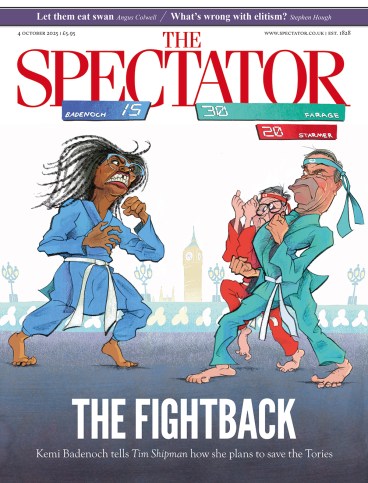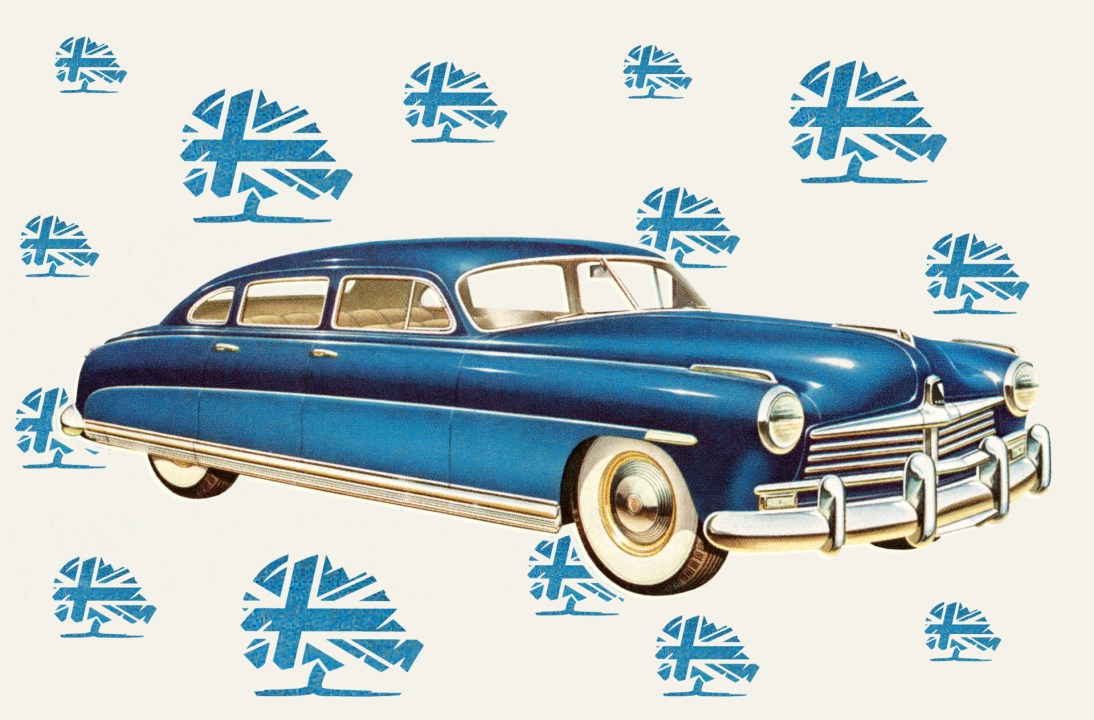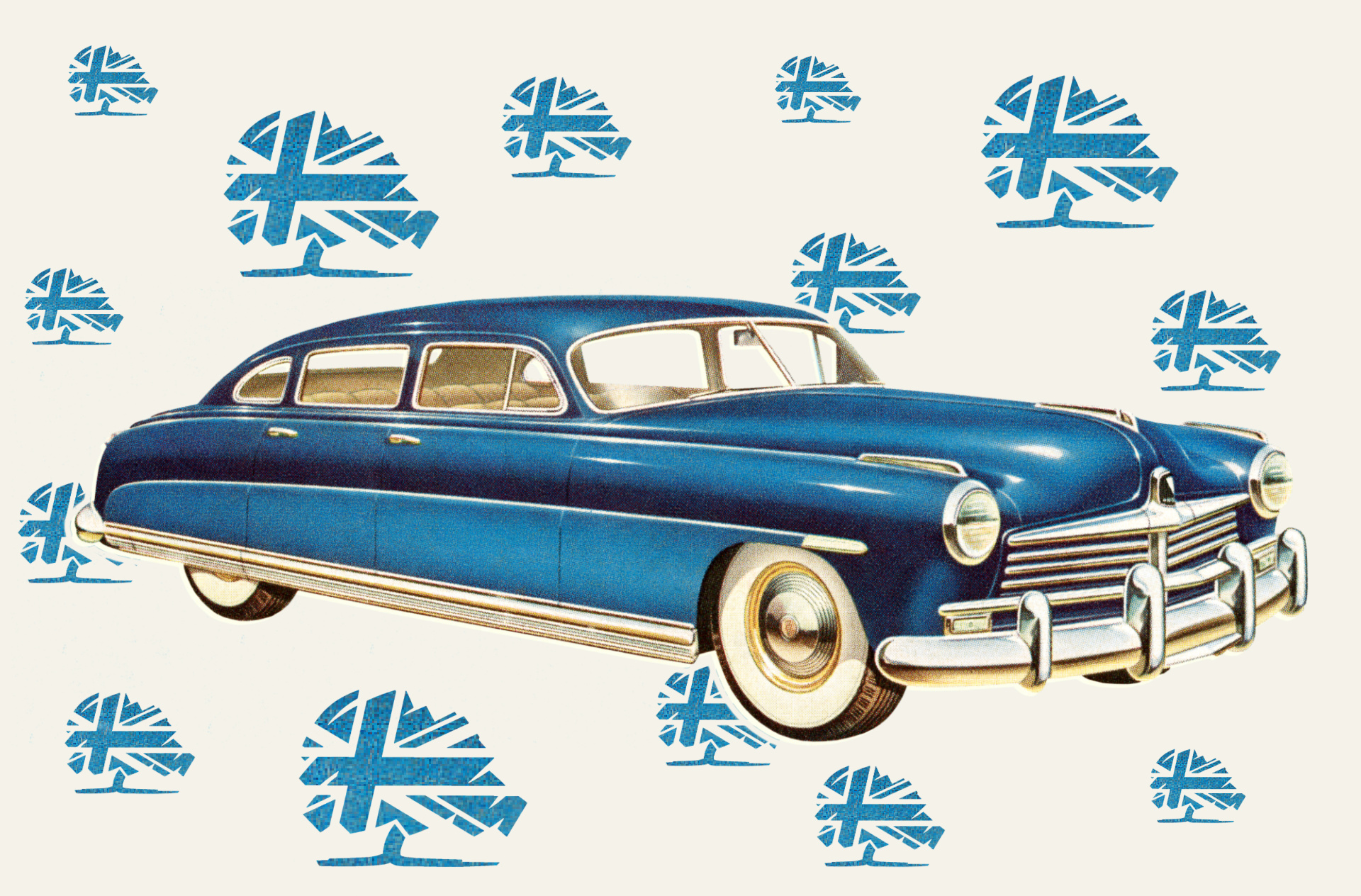
The path to electoral success at the next election is straightforward. Just follow what I call the Channel 5 strategy. Channel 5 is a rare success story in the world of free-to-air broadcasting, a feat attained by following a simple playbook: making programmes the public likes to watch, but which people working in television are mostly too precious to make.
Channel 4 got there first. By broadcasting American football, it found a sport which was far more popular with the public than most ‘people in television’ realised. Every NFL game played in London since 2007 saw sold-out crowds at Twickenham or Wembley; when the Pittsburgh Steelers made an appearance in Regent Street, more than 250,000 people turned up. I suspect any political party which promised the UK its own NFL franchise would gain half a million votes.
Why does nobody do this? Mostly because, among the reputationally paranoid educated middle class you would lose peer-group respect by doing so. There is a lesson here from another American sport, basketball. As of today, Rick Barry still holds the all-time NBA record for the highest free-throw percentage in the history of the sport; all the more remarkable since Rick (who is 81) retired in 1980. He achieved this by throwing underhand, an approach almost every subsequent player has disdained to copy. As Shaquille O’Neal explained: ‘I told Rick Barry I’d rather shoot 0 per cent than shoot underhand. I’m too cool for that.’
John Maynard Keynes made the same point when he observed (of investing, not basketball): ‘Worldly wisdom teaches that it is better for reputation to fail conventionally than to succeed unconventionally.’ In any sphere, people are more eager to avoid peer-group opprobrium than to achieve box-office success. (It always amused me how it pained the BBC to broadcast Top Gear, even though it was its biggest export.)
In the old days of capitalism, the way to make money was to do something your competitors were physically or technologically incapable of copying. Now you can simply find an emotional territory your competitors are culturally or ideologically incapable of occupying. What in politics is called a ‘popularist’ is called an entrepreneur in business: someone who spots a misalignment between what incumbent businesses think is important and what customers care about. In business, the mantra is ‘You are not your customer’; in politics it’s ‘You are not your voter.’ Nigel Farage and Donald Trump know this; both say the things their rivals can’t bring themselves to mention. They are popular because they are resolutely unfashionable: the Mrs Brown’s Boys of politics.
In any sphere, people are more eager to avoid peer-group opprobrium than to achieve box-office success
Dominic Cummings is a master of this psychological jujutsu. In the run-up to the 2016 vote, he proposed creating a movement called ‘Vapers for Brexit’, because a million more people (including me) were more likely to get riled over losing their blueberry–flavoured vapes than the technocratic guff Remainers bored us with.
My latest suggestion is for the Conservatives to rebrand as the Conservative and Motorist party. More than migration, the attitude to the car is perhaps the biggest gulf between received and popular opinion. Most people love their cars, yet it is an article of faith among our political class (i.e. tragic bus-riding Londoners) never to miss an opportunity to tax or otherwise inconvenience drivers. I have two policies pretty much oven-ready. First, get rid of speed bumps. It is ridiculous in 2025 to limit car speed by making roads unpleasant. Second, it’s time to make speed cameras properly Bayesian: every time you drive past a camera at a legal speed, you should earn points which you can redeem against future offences. When you think about this a little, it’s not quite as mad as it first sounds.









Comments